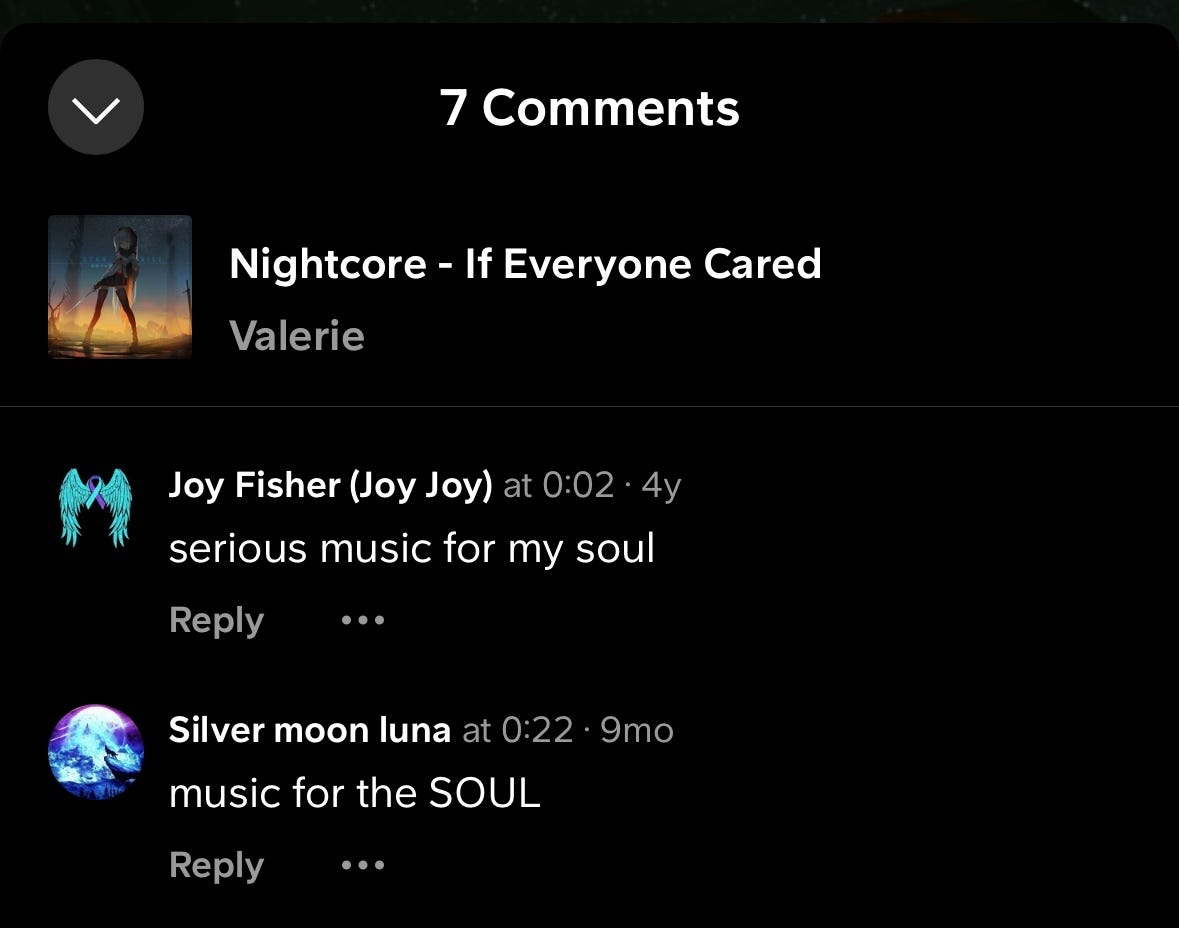Number 005: Doing the Harlem Shake, etc.
I'll probably just wear jeans and like a nice button down, maybe the blue striped one from J. Crew
Introduction
I don't believe in democracy and I just want you guys to know that.
On planking
We became the generation interested in ourselves. We have no problem with self-involvement. They call us vain; we say we must have got it somewhere, so technically we’re blameless, so we’re monstrous and shameless, look at us while we’re talking to you. We are the generation that decided we should be looked at. No more to documentaries of undiscovered worlds, of undercover investigations, of unreported people. We are the generation that decided, if you won’t look at us, we’ll look at ourselves. Michaela Coel, 2019(?)
Do you remember "cone-ing?" I do. It was an early social media trend in which the prankster would order an ice cream cone at a drive thru and then, when offered the cone, would grab the ice cream with their bare hand (random!), startling the employee. I have a real soft spot for coning because it is a victimless crime - no one is harmed, it's just stupid, and you already paid for the cone. And it is funny.
I frequently say that one of my biggest issues with Gen Z social media discourse is that people take a singular, discrete experience of theirs and use it to make a broad, cultural statement about a generation - or even a society. I'm about to do the same, the difference is that I'm right, so I'm allowed to. (Put more genuinely, you can do this if you collect enough evidence and are making a good faith attempt at understanding rather than main character-ing yourself - AND it's up to you, reader, to decide if the person you're reading is doing that or not! So you decide, and then you decide whether you care about what I have to say or not! Go crazy!)
In Michaela Coel's staggering and outstanding I May Destroy You, her pseudo-autobiographical main character is drugged and sexually assaulted on a night out. I'll quote from the piece cited above: "In the pilot, like Coel, Arabella comes to after her assault, while working on her manuscript. Coel felt it was important to imagine what she would have written, even if the viewer never sees it."
The passage cited at the beginning of this essay is what Coel wrote, imagining what her character might have written. Aside from being an example of the seriousness and commitment required to make singular, magnificent art (she wrote 191 drafts of the show's script), the hidden excerpt is a sharp characterization of post-Y2K youth. The true, authentic trends of Vine-era social media like cone-ing, planking, the Harlem Shake even, etc. were uniformly asinine, of course, but they were also real, and they were grounded in something real (in contrast, for example, to Facebook astroturfing fake TikTok trends to foment fear of the app among suburban parents).
Someone smarter than I might write something about how this was the early manifestation of the "attention economy," which it surely is, particularly if you imagine that early coners and plankers were doing it primarily to collect YouTube partnership money, but it's more interesting to me as a manifestation of the youthful desire for attention alone. We are the generation that decided, if you won’t look at us, we’ll look at ourselves. Did you and your friends take videos of you doing the dumbest stuff imaginable as a young teen? Did you think you'd get famous or rich from it? Curiously attracted to the capture of Something Shattering, I didn't think I'd get either rich or famous from carefully constructing Lego vessels and running ziplines into the side of my friend's house, or filming my cousin and I flinging glass bottles from a moving golf cart against a rock. I (we) did it because... I don't know... but I filmed it because filming it made it real, it validated the behavior, shifting it from meaningless dribbling to something noteworthy. It became history. Perhaps it has something to do with the uniquely modern phenomenon of seeing thousands of people die on live television every few years, or perhaps it has to do with the inescapable and ubiquitous feeling bestowed upon us by our elders that we should have been a little more grateful.
In suburban America, the only real attention teens are frequently given is a second (and, if you have the misfortune of being something other than white, a third, fourth, fifth...) glance from the rent-a-cop in Zumiez or Foot Locker. In the 2000s, as terrorism was invented in real-time and the raison d'etre for the entire country began to tremble, many of the adults in our lives reasonably put their head down and worked (or got laid off) hoping that the next time they looked up, the country would resemble something like the dream that they were sold in young adulthood. With no one looking, American teenagers reasonably decided to look at themselves. If no one cares, why not violate some social norms for the consumption of my friends? People were paying mortgages at rates double the "value" of their homes; insurmountable debt was being created out of thin air. Is it any sillier to grab an ice cream cone upside down?
Other things
Nominalizations are often used in a way that “obfuscates meaning,” Sword said. The further writing strays from concrete images, the more challenging it is to comprehend. “Thinking hard is good,” Sword added, but when somebody plies you with nominalizations, “you start to feel like maybe they don’t want you to understand.”
...
But, when I showed Sword my favorite neo-nominalizations, she admitted that “something different seems to be happening.” My examples—“Gen Z-ification,” “S.U.V.-ification,” “bimbofication”—had been nouned from fellow-nouns. Sword explained that that’s “relatively rare” among zombie nouns, which are often formed from verbs and adjectives. Many of the “-ification” source words are proper nouns, in particular—Trump, Kim Kardashian, Goop—but their nominalization refers not to the specific people or brands so much as to whatever values they represent.
...
Some degree of clumsiness seems intentional. The reporter Kelsey Weekman, writing for BuzzFeed about the Internet’s infatuation with formulations such as “-pilled” (“redpilled,” “tradpilled”) and “-core” (“cottagecore,” “Barbiecore”), noted that “much of the joy in suffix-ify-ing a word now comes from the absurdity of smashing two words together that never would have met in organic conversation.” Jackson, 2023
Tell me ur favorite nominalizations in the comments…….
I think part of this is a shift in the way knowledge is created (or perceived to be created), particularly among younger adults. (Author's Note: I was literally going to write Gen Z and then I thought to myself "man, has more ink ever been spilled talking, thinking, discoursing about a generation than Gen Z? Then I thought to myself, "oh yeah they literally did the same thing with millennials" with the avocado toast and Starbucks hand-wringing as if all of my peers didn't have a net worth of -$50,000 by the time they could rent a car.) I've been confronting for some time now the news that young adults prefer to look up "coffee recipe" or something on TikTok rather than Google, or that they'd rather watch a video of someonemaking coffee on YouTube than read about how some "expert" does it. I don't think this is bad! I mostly don't think it has any moral character, I just think it's interesting. I do celebrate the belief, if it exists, within young adults that they, too, can create knowledge and understanding without an advanced degree or some other external affirmation of qualifications (two nominalizations in three words, smh).
On the other hand, I tend to view a lot of cultural shifts in post-2016 America as some kind of absurdist response to mainstream social life. In this case, I can certainly see the cultural value in "so-called experts have been making up unhelpful, complicating words forever. Why can't I do it, especially if mine is actually useful?" Perhaps not to everyone, but SUV-ification and PopCrave-ification are both coherent and useful to me! If you submitted that to an academic journal, of course, you'd be shot, but isn't that kind of the point?
On a third hand, I like the author's point that "sometimes pedantry is annoying but not superfluous." I'm biased because I was raised to care about saying things the correct, proper way, but I think rules and conventions of writing are Good because they typically exist for a reason, and if you have adequate understanding/respect for them then you might be able to bend or break them in interesting ways.
As much as I’d like to make the “let people enjoy things” problem about adults who enjoy comic books, it’s more deeply rooted: it is a pathological aversion, on a wide cultural level, to disagreement, discomfort, or being judged by others. “Let people enjoy things” is essentially the twitchy fear of “cancel culture,” translated over into the world of taste. There are reasons that it’s much more visible when it comes to comics, video games, and general fandom — among them, sheer numbers. But let’s not kid ourselves. It’s everybody’s problem.
...
I want more for art and big-budget entertainment than the world it’s got. I want something more than consumption. I want smart thrillers for adults that aren’t turned into franchises. I want space for people to take big chances and blow them. I want to feel that a TV show or a movie or a book respects me, my intellect, and my time. I want conversations that are not striving for consensus. I want beauty and ugliness and all the rest. My appetite — really — is boundless.
In the conflict between fans and snobs, it’s easy to explain what I don’t like about fandom. I’d like to end on a different note: if you read this piece, and nodded along, because you find fans tedious and Marvel movies dreadful and gamers cringe and all the rest, consider becoming a better snob. McClay, 2021
Everyone should critically evaluate everything, because everyone deserves better. Artistic criticism isn't a personal attack, and demanding more from the art world, particularly as it only gets more commodified, is an act of love for others.
Sam Altman, the C.E.O. of OpenAI, with whom Musk has both worked and sparred, told me, “Elon desperately wants the world to be saved. But only if he can be the one to save it.” Farrow, 2023
I cannot express enough how insane this is (and how insane it is for Ronan Farrow to uncritically publish it) from Sam Altman, someone I deeply, deeply resent for his brazen self-service and egotistical neo-eugenics, when Musk is clearly a "replacement theory"-type white supremacist ("'The only thing we are on Earth for is to reproduce,' Errol Musk [Elon's father], 76, said, shortly after confirming his second child with his 35-year-old stepdaughter"). Elon tweeted, "Doing my best to help the underpopulation crisis," when it was revealed he had his eighth and ninth children with a Neuralink executive. When he talks about the underpopulation crisis, Musk frequently discusses "his friends," who are (allegedly) not having children. Why do you think he perceives that as a crisis? Why is he trying to put chips in people's brains to make superhumans? What do you think his superhumans look like? Which kinds of people will test the brain implants before they're declared safe for wealthy white people? Do you think it’s a coincidence that he was born in South Africa in 1971?
"The day the article [about her relationship with Musk] was published, [Grimes] tweeted, "Me and E have broken up again since the writing of this article haha, but he's my best friend and the love of my life, and my life and art are forever dedicated to The Mission now." (She later defined "The Mission" as "sustainable energy, making humanity a multiplanetary species and the preservation of consciousness.")" Black, 2022
The intention of this thesis (The Mission) is not to improve the lives of living human beings, it's to create an exclusionary utopia wherein only "intelligent" (read as: valuable) people can exist. The goal has always been to eliminate or vanish laborers and troublemakers, or anyone who isn't willing to accept subjugation at the hands of white capitalists, in addition to Black and Brown people who do not fit their racist vision of the future. Their insistence in their own superiority reveals the true insecurity underlying the entire project: that their financial success is essentially arbitrary, and at great risk of loss (in Musk's [and Peter Thiel's] case, financial success comes as a result of selecting grift projects that are uniquely poised to draw the economic support of the federal government and thus cannot fail).











"Everyone should critically evaluate everything, because everyone deserves better." <-- yes!!!!
My throwing glass at rocks was tying dental floss to bees' legs, resulting in bee on a leash (do not attempt).
what a thrill throwing glass at rocks was